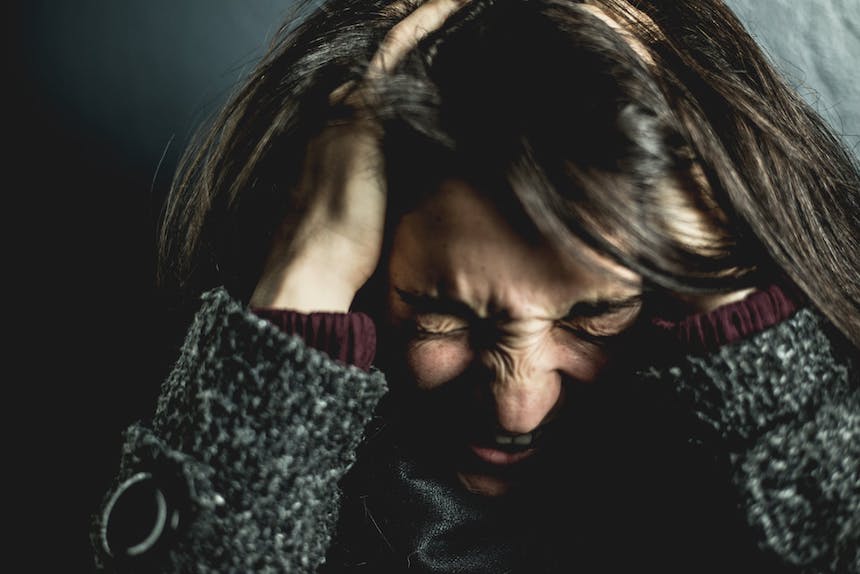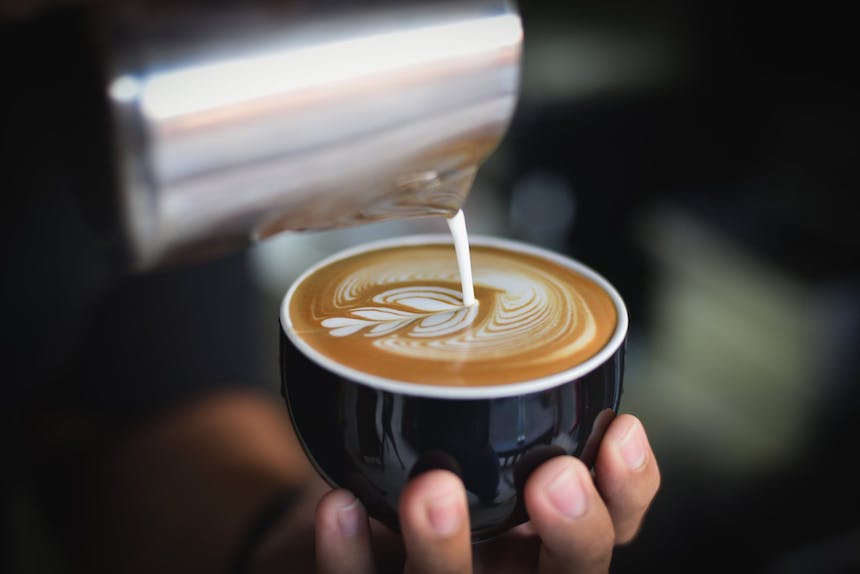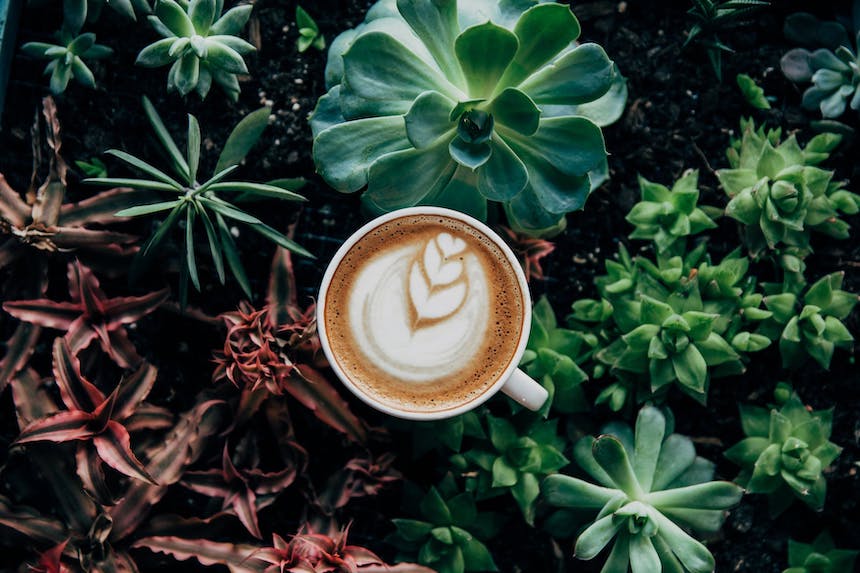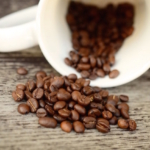
Have you ever tried to identify how long can you go on without coffee? Is it possible for you to wake up and move on with your day without a cup of this energizing warm beverage? How long does it take you before you start feeling tingles, craving for a shot of caffeine? Although coffee is a legal stimulant and is widely consumed all over the world, it doesn’t mean you can’t become dependent on it.
Coffee addiction isn’t, of course, as serious as other drug addictions because it doesn’t pose the same health threats. However, it can be uncomfortable when you start experiencing unpleasant symptoms because you didn’t have your cup of coffee when you usually do. What’s interesting, caffeine is nowadays present in many other beverages and foods, including energy drinks, sodas, tea, cocoa beans and even some medications like pain relievers. So, maybe you are taking even bigger amounts of caffeine than you have initially thought. If you suspect you may have become addicted to coffee, there are some signs to watch out for. Read on and see if you are showing any of them.
1. Lethargy When Without Coffee
Mind your physical condition when you for some reason miss your first coffee. If you experience lethargy that bothers you throughout the day, making you feel sluggish or cancel plans with people close to you, you may be going through withdrawal. You will maybe feel unwilling to participate in social events, too tired to and demotivated to do some bigger actions.
Many habitual coffee drinkers enjoy their coffee in the morning to have a kick-off start or they seek a cup in the late afternoon to keep them going. In case they don’t have their usual cup, their energy levels can dramatically decrease because their bodies didn’t get the usual caffeine shot.
2. A Pounding Headache

One of the effects of caffeine is that it makes the blood vessels narrower, decreasing blood flow. Consequently, it helps relieve headaches, which why caffeine can be found in some pain relievers. Some people even drink coffee as a home remedy for headaches of different causes, for example, when the weather conditions are about to change or when the person overslept and woke up with a headache.
However, if you are addicted to caffeine, skipping your coffee for one day will cause a headache. According to research, 50% of caffeine addicts will experience withdrawal headaches if they skip coffee for one day. Some people never get to experience headaches after skipping coffee, even if they drink it on an everyday basis, but the science is yet to find out why.
3. Nausea
If you are a caffeine addict and you go without it for a day, you may experience strong physical symptoms of withdrawal like nausea. If you have this uncomfortable feeling of having to vomit, it may be a sign of caffeine dependency. However, drinking coffee in itself can also be the cause of nausea for some people. Smaller amounts are perfectly ok but going too far could make your stomach feel uneasy.
4. Grumpiness
Caffeine is a stimulant and, like any other stimulant, it has a positive effect on your pleasure center. It stimulates the dopamine receptors in the brains, similar to cocaine and other drugs, just not as strongly. Caffeine also stimulates the production of adrenaline, which is responsible for our good mood. No wonder why many of us long for a cup of coffee to make us feel good. However, if you skip this routine of yours, you may get yourself into a bad mood. That would mean your brain is relying on the caffeine to experience pleasurable feelings. In other words, going through the day without coffee could make you moody and very grumpy, making other people want to avoid you.
5. Muscle Issues
Symptoms, when you’re coming down with the flu, are very similar to symptoms of caffeine withdrawal – you feel muscle pain, cramping, as well as stiffness. Even light activities like walking or climbing up the stairs can be uncomfortable and even painful. This is all due to caffeine withdrawal. If you notice you’re not feeling strong enough or any unpleasant feeling in your muscles, look for the connection between that and your last cup of coffee.
6. You Can’t Bear the Thought of a Life Without Coffee
If the very thought of going through life without coffee makes you feel desperate, then you might be an addict. Think about your usual behaviour. Maybe you’re ‘scared you’ll run out of coffee when you need it most, so you’re constantly buying espresso or coffee capsules and accessories that come with it. Maybe somebody has already suggested you should cut down on coffee or cut it out completely from your diet and that made you angry, sad or desperate.
If you can’t imagine not having your regular cup of coffee, then you need to set your priorities straight. It’s no fun being dependable on any item or even a person to help you function and be in a good mood.
7. Losing Focus
A foggy brain after a skipped cup pf coffee is a clear sign of caffeine addiction. Again, our brain relies on caffeine to boost adrenaline production, which then helps us be focused and alert. In case you don’t get that boost of adrenaline, you will find yourself in a haze, unable to concentrate on sometimes even simple tasks. It’s understandable why many people drink coffee at work but it’s not ok if you can’t focus properly without any help on the side.
8. You’re Slowly Increasing the Number of Cups

Maybe you have started with just one cup of coffee day. And then you went on to drink two of them because you simply enjoy the taste. Next, you upped the dose because you noticed it makes you more energized. In time, you have made a habit out of it to go through the day with coffee and one day you felt like you need one cup of coffee more because it just wasn’t your day that day. Sounds familiar?
In time, your brain gets accustomed to a certain amount of caffeine but over a longer period, it also becomes resilient to it. Consequently, you will have to increase your dose to achieve the same effect. And you really want it to work, right? The question is when a lot becomes too much.
What many people find problematic here is having to choose between the two – do they up the dose and go overboard to achieve positive effects or do they decrease the dose and experience annoying and unpleasant withdrawal with all of its negative effects?
9. Indigestion Issues
Our stomach is a very sensitive organ, so no wonder why some caffeine addicts can experience much more than nausea when they go into withdrawal.
First of all, you may realize that your regular bowel movements are dependable on your coffee intake. Skipping your coffee for a day or two may even lead to constipation because coffee was what controlling your bowel movements. You will need some time and medications or home remedies, and maybe even some diet changes, in order to have a regular bowel movement again without the help of caffeine.
On the other hand, drinking too much caffeine could lead to various stomach problems, including painful heartburn, flatulence, ulcers, and frequent urination.
10. Frequent Mood Swings
If you’re experiencing caffeine withdrawal, you may not simply be grumpy. You can experience quick changes in your mood, feeling unable to remain stable. As caffeine is a stimulant of which you have deprived your brain, it’s no wonder you may feel depressed, sad and then angry for no apparent reason at all. You’ll feel a strong desire to drink coffee to make yourself feel stable again and you’ll probably be pretty unpleasant for others to be around.
Not All Is Bad – The Benefits of Coffee

Going through these withdrawal problems, it may sound like drinking coffee is really bad for your physical and emotional health. However, we are talking about addiction here, which is so much different than a healthy enjoyment in this warm beverage. To remind you why it’s good to have a cup of coffee now and then, here are a couple of benefits of drinking coffee:
- Coffee can help you burn fat because it boosts your metabolic rate.
- It boosts your energy level so that you are in a better physical condition for doing exercises.
- Important nutrients like vitamins B2, B2, B5, and potassium are all found in coffee, as well as magnesium and riboflavin.
- The risk of type 2 diabetes may be lowered thanks to coffee.
- It may protect you from Alzheimer’s and dementia, as well as from Parkinson’s.
- Coffee can protect your liver from cirrhosis.
- It may lower the risk of certain types of cancer.
- Contrary to what people believe, coffee doesn’t lead to heart diseases due to increasing your blood pressure. The increase is minor and doesn’t last for long. What’s more, coffee can lower the risk of stroke.
- Coffee is rich with antioxidants that fight free radicals, which cause cell damage.
- Coffee drinkers tend to be healthier than those who don’t drink coffee, which tends to them living longer.
Let’s be clear about one thing – nothing is good if we go overboard with it. In general, coffee is a beverage that has significant benefits for our health. However, just like many other things in our lives, it becomes a problem if we become too dependent on its effects.
It all comes down to the issue of addiction. Even if something makes us feel good, relying solely on that thing when it comes to feeling good isn’t healthy, not in the physical and especially not in the mental aspect. Everything that becomes so big and important we can’t properly function without it will ultimately be our downfall.
So, if you have been honest with yourself and identified your coffee addiction, it’s time to look at your options and seek help. If you’re unsure whether some of the signs mentioned are coffee-related, you should still consult a doctor. A medical professional will take it from there. You just make sure that your love for coffee is healthy and that it doesn’t become anything more than just a beverage you like.
- 10 Signs You Might Be Addicted to Coffee - November 14, 2019
- 11 Tips for Planning a Perfect Last-Minute Wedding - June 11, 2019
- 4 Green Home Improvement Ideas to Increase Your Home’s Energy Efficiency - November 13, 2018







Such a wonderful blog. I loved it. Every executive needs to follow this. Keep sharing great information. We hope to get more from your blog.